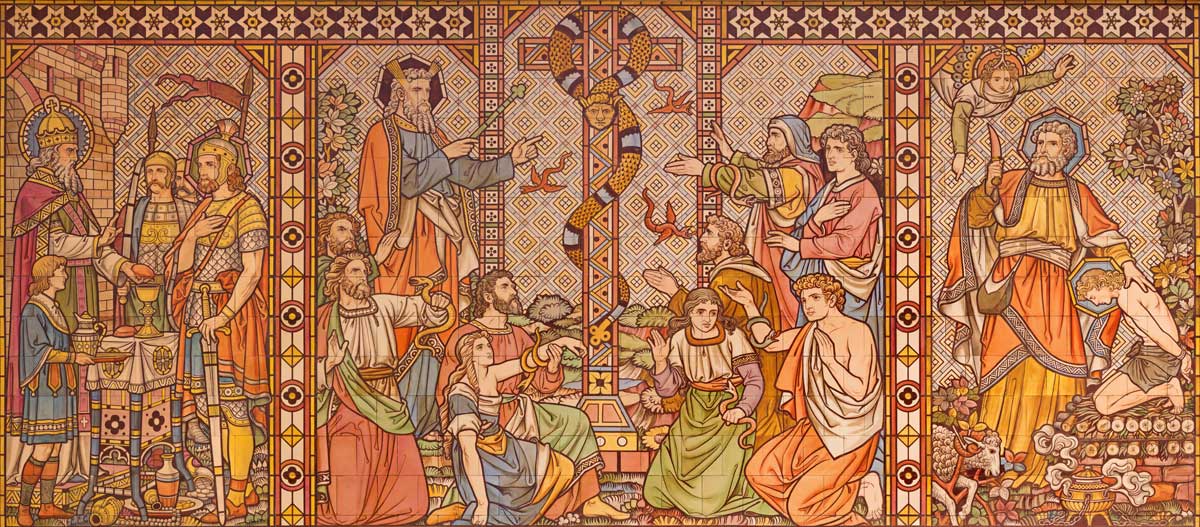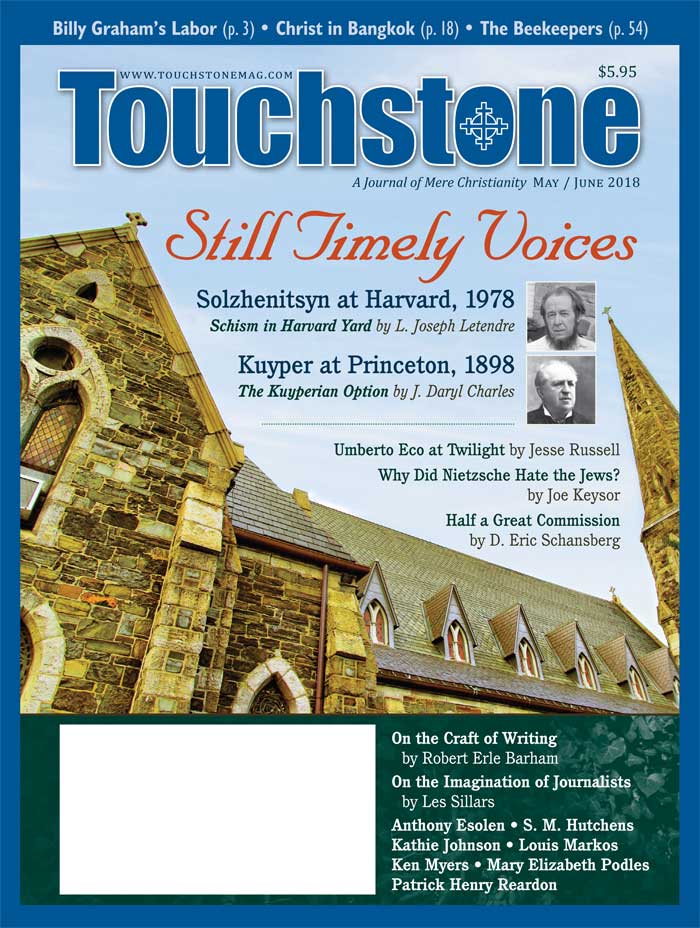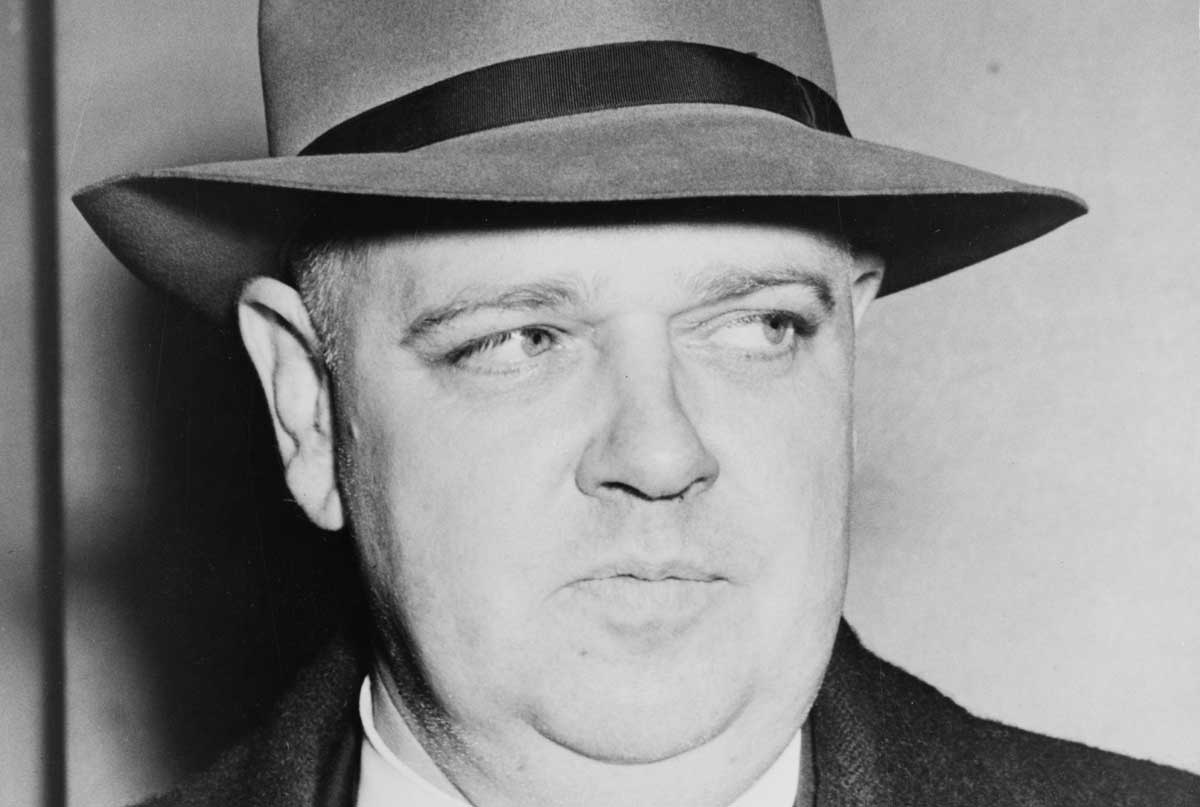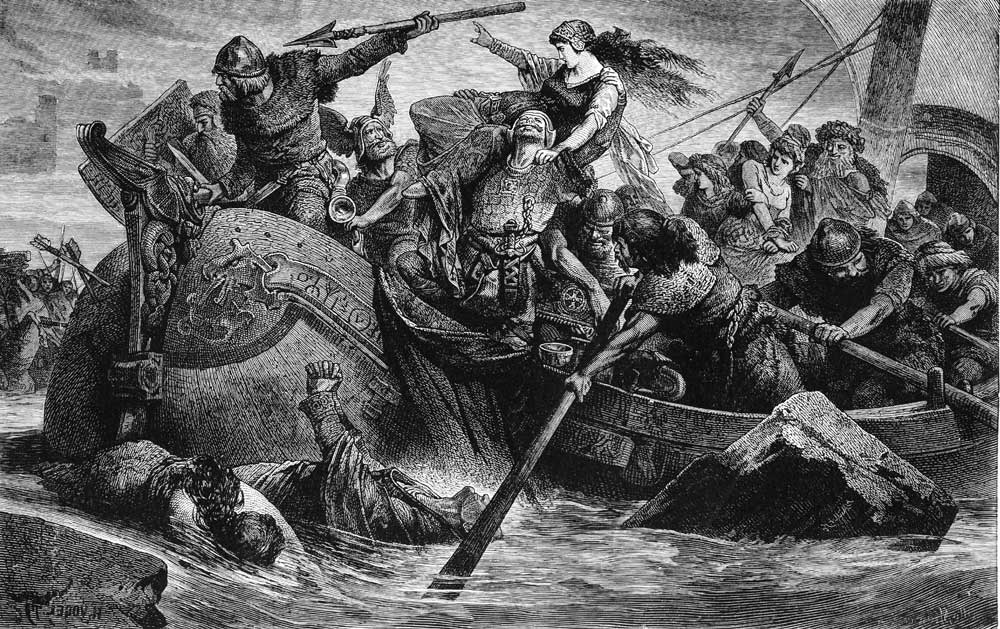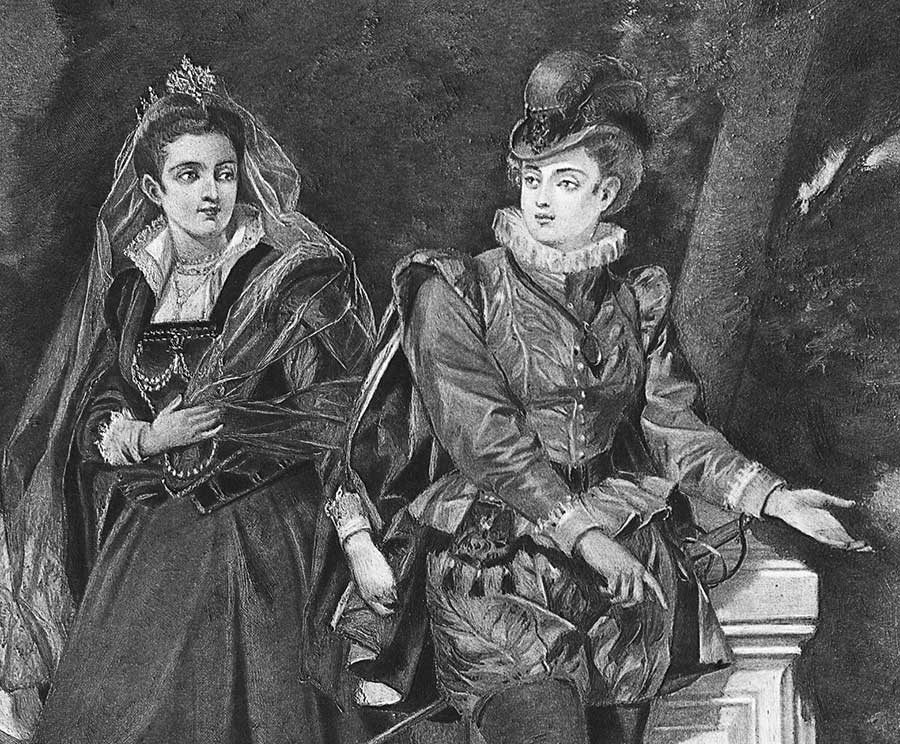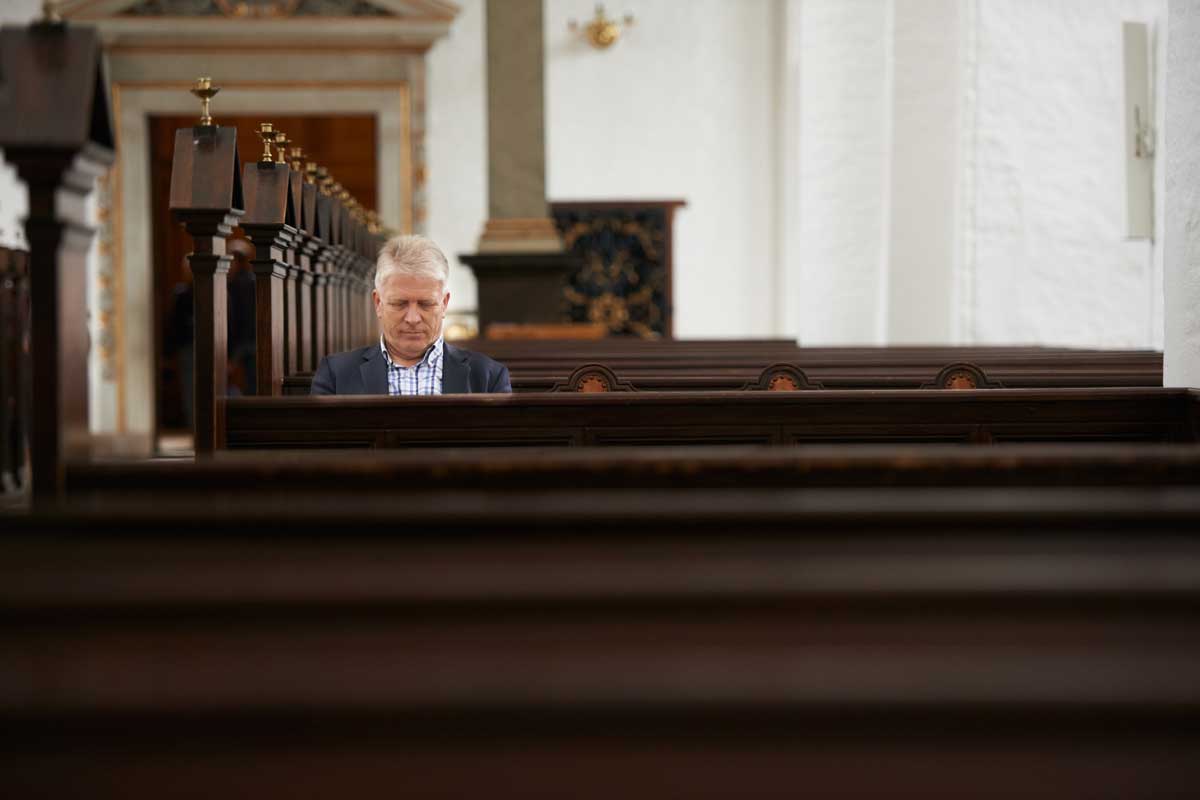Feature
The Great Jewish Plot
The Riddle of Nietzsche's Philosemitic Anti-Judaism
Friedrich Nietzsche's overt hostility toward and contempt for Christianity were unusual in his day, but in the following century they became, and remain, more common. Nowadays Nietzsche is something of a cultural icon, and his belief that Christianity is not merely false, but unnatural, harmful, and hostile to life is becoming more normative than many Christians realize.
The reasons for Nietzsche's hatred of Christianity—and "hatred" is not too strong a word here—are not always fully grasped. Far from being the result of a dispassionate and reasoned consideration of facts and evidence, Nietzsche's approach to the Christian religion was influenced not only by various personal issues that may never be fully explained, but also by a deep hostility toward Jews and Judaism.
Many people agree with Nietzsche that there is no God, and that supposedly divine rules are merely human inventions, leaving us free to follow our own inclinations to the furthest limit, without let or restraint. Such ideas are sweet music to the ears of those who desire only personal freedom without regard for future consequences—but some who agree with Nietzsche's anti-religious conclusions would not share the unusual thought processes by which he reached those conclusions. In particular, his conviction that Christianity was merely a Jewish trick, invented to enslave stronger peoples with a false slave morality, would be difficult for even the most articulate atheist to cogently defend today.
Apart from the larger question of a noted and highly influential contemporary thinker's attitude toward Christianity, there is the secondary issue of Nietzsche's still debated role in some tragic events of German history. Nietzsche's strong condemnations of anti-Semitism, as well as his favorable comments about individual Jews and even about the Old Testament, have been widely effective in distancing Nietzsche from the horrors of the Third Reich. If Nietzsche condemned democracy and called for the rule of an elite few; if he endorsed slavery and glorified war and violence; if he provided many quotes which, taken at face value, did seem to mesh perfectly with Nazi ideology—still, his positive comments about Jews and his negative comments about anti-Semites make it much more difficult to link him to the
Holocaust.
Praise for the False
It is too little realized that comments of Nietzsche's that appear to distance him from modern anti-Semitism are not always what they seem. Nietzsche's meanings are not always obvious, to be picked up easily off the surface, and that is the case here. If occasional seemingly favorable comments about Jews can in fact be reconciled with more consistently negative ones, it might help towards a more accurate evaluation of Nietzsche's place in the development of modern secular anti-Semitism.
Take, for example, Nietzsche's praise of the Jewish Scriptures. In The Genealogy of Morals, Nietzsche asserts his distaste for the New Testament, and goes on to say, "all honour to the Old Testament. I find therein great men, an heroic landscape . . . further still, I find a people" (GM III, 22). Certainly a conventional anti-Semite would never have praised Judaism in this way—but then, Nietzsche was never conventional, and it is a common mistake to read him too superficially.
To begin with, Nietzsche was, after all, an atheist, and the idea of a God laying down laws and rules with punishments for disobedience and rewards for obedience was anathema to him. Moreover, in The Antichrist Nietzsche explicitly denounced the Old Testament, saying, "The concept of God falsified; the concept of morality falsified: but the Jewish priesthood did not stop at this. . . . These priests accomplished that miracle of falsification, of which the greater part of the Bible is the document" (AC 26).
To understand how Nietzsche could praise a (to him) fundamentally false book that contradicted his most basic tenets, we need only to look back to Ludwig Feuerbach. This atheist asserted that conventionally religious concepts of God were merely projections of human consciousness; that religion was false, yet still significant as a profound human expression of aspirations toward justice and meaning in life. In the same way, Nietzsche could dismiss the Old Testament as false in "the greater part," yet still see the remainder, with its conquests, wars, and "the mighty and thoroughly free-born figures of the history of Israel" (AC 26) as the expression of a healthy consciousness.
"Originally, and above all in the period of the kings, even Israel's attitude to all things was the right one—that is to say, the natural one. Its Jehovah was the expression of its consciousness of power, of its joy over itself, of its hope for itself" (AC 25). This is contrasted in the same section, however, with the later transformation (which he elaborates on) from an originally healthy Jewish concept of God, allowing for power, conquest, and victory, to one cunningly devised by priests for their own advantage. This new concept of God imposed "a so-called moral order of the universe," including guilt, obedience, punishments and rewards—all of which Nietzsche blasted with great hostility.
Joe Keysor has been teaching English overseas since 1995—in China, Oman, and now at Prince Sultan University in Riyadh, Saudi Arabia. He has written two books on the subject of Hitler and Christianity (both published by Athanatos Christian Ministries): A Horror of Great Darkness: Hitler and the Third Reich in the Light of Biblical Teaching (2014) and Hitler, the Holocaust and the Bible: A Scriptural Analysis of Anti-Semitism, National Socialism, and the Churches in Nazi Germany (2010).
subscription options
Order
Print/Online Subscription

Get six issues (one year) of Touchstone PLUS full online access including pdf downloads for only $39.95. That's only $3.34 per month!
Order
Online Only
Subscription

Get a one-year full-access subscription to the Touchstone online archives for only $19.95. That's only $1.66 per month!
bulk subscriptions
Order Touchstone subscriptions in bulk and save $10 per sub! Each subscription includes 6 issues of Touchstone plus full online access to touchstonemag.com—including archives, videos, and pdf downloads of recent issues for only $29.95 each! Great for churches or study groups.
Transactions will be processed on a secure server.
more on history from the online archives

15.6—July/August 2002
Things Hidden Since the Beginning of the World
The Shape of Divine Providence & Human History by James Hitchcock
more from the online archives
calling all readers
Please Donate
"There are magazines worth reading but few worth saving . . . Touchstone is just such a magazine."
—Alice von Hildebrand
"Here we do not concede one square millimeter of territory to falsehood, folly, contemporary sentimentality, or fashion. We speak the truth, and let God be our judge. . . . Touchstone is the one committedly Christian conservative journal."
—Anthony Esolen, Touchstone senior editor






